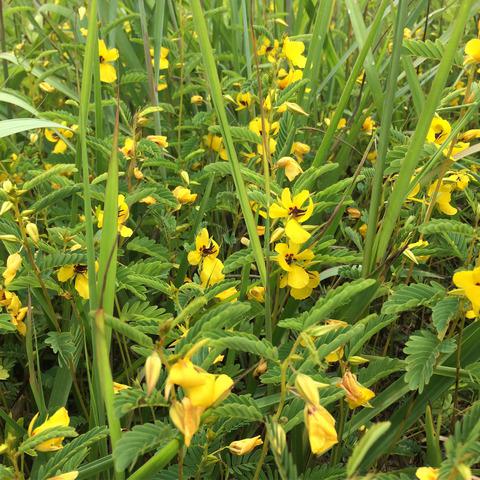Our official English website, www.x-mol.net, welcomes your
feedback! (Note: you will need to create a separate account there.)
Novel plant–microbe interactions: Rapid evolution of a legume–rhizobium mutualism in restored prairies
Journal of Ecology ( IF 5.3 ) Pub Date : 2020-01-30 , DOI: 10.1111/1365-2745.13366 Susan M. Magnoli 1 , Jennifer A. Lau 2
中文翻译:

新型的植物-微生物相互作用:恢复大草原中豆科植物-根瘤菌互生的快速进化
更新日期:2020-01-30
Journal of Ecology ( IF 5.3 ) Pub Date : 2020-01-30 , DOI: 10.1111/1365-2745.13366 Susan M. Magnoli 1 , Jennifer A. Lau 2
Affiliation

|
- When plants colonize new habitats, the novel interactions they form with new mutualists or enemies can immediately affect plant performance. These novel interactions also may provoke rapid evolutionary responses and can be ideal scenarios for investigating how species interactions influence plant evolution.
- To explore how mutualists influence the evolution of colonizing plant populations, we capitalized on an experiment in which two former agricultural fields were seeded with identical prairie seed mixes in 2010. Six years later, we compared how populations of the legume Chamaecrista fasciculata from these sites and their original (shared) source population responded to nitrogen‐fixing rhizobia from the restoration sites in a greenhouse reciprocal cross‐inoculation experiment.
- We found that the two populations differed both from their original source population and from each other in the benefits they derive from rhizobia, and that one population has evolved reduced allocation to rhizobia (i.e. forms fewer rhizobium‐housing nodules).
- Synthesis . Our results suggest that these plant populations have evolved different ways of interacting with rhizobia, potentially in response to differences in rhizobium quality between sites. Our study illustrates how microbial mutualists may shape plant evolution in new environments and highlights how variation in microbial mutualists potentially may select for different evolutionary strategies in plant hosts.
中文翻译:

新型的植物-微生物相互作用:恢复大草原中豆科植物-根瘤菌互生的快速进化
- 当植物在新的栖息地定居时,它们与新的互惠生或敌人形成的新颖互动会立即影响植物的生长。这些新颖的相互作用也可能引起快速的进化反应,并且可能是研究物种相互作用如何影响植物进化的理想方案。
- 为了探索共生主义者如何影响定植植物种群的进化,我们利用了一个实验,该实验在2010年用相同的草原种子混合物播种了两个以前的农田。六年后,我们比较了这些地点的豆科植物Chamaecrista fasciculata的种群和在温室相互交叉接种实验中,他们的原始(共有)源种群对恢复地点的固氮根瘤菌有反应。
- 我们发现,这两个种群在其从根瘤菌获得的利益方面既不同于其原始来源种群,又彼此不同,并且一个种群已经逐渐减少了对根瘤菌的分配(即形成较少的根瘤菌根瘤)。
- 综合。我们的结果表明,这些植物种群已经进化出与根瘤菌相互作用的不同方式,这可能是由于站点之间根瘤菌质量的差异所致。我们的研究说明了微生物共生者如何在新环境中影响植物进化,并强调了微生物共生者的变异如何可能为植物宿主中的不同进化策略选择。











































 京公网安备 11010802027423号
京公网安备 11010802027423号